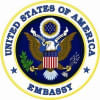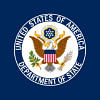Bangladesh yet to meet minimum requirements for fiscal transparency: US report

A new US report says Bangladesh government has not met the minimum requirements of fiscal transparency although made significant progress towards meeting international requirements for the first time ever.
The US Department of State yesterday (September 9, 2022) published the 2022 Fiscal Transparency Report in consultation with other relevant US agencies. It assessed the governments which receive US foreign assistance including Bangladesh.
The report that has been published since 2008, reviews efforts by 141 governments (and the Palestinian Authority) to meet the minimum requirements of fiscal transparency. It also assesses those governments that did not meet the minimum requirements.
The report also indicates whether governments that failed to meet the minimum requirements of fiscal transparency made significant progress toward meeting the requirements.
Fiscal transparency informs citizens how government and tax revenues are spent and is a critical element of effective public financial management. Transparency provides citizens a window into government budgets and those citizens, in turn, hold governments accountable. It underpins market confidence and sustainability.
"During the review period, the government made significant progress by publishing its end-of-year report within a reasonable period. It also made its executive budget proposal and enacted budget widely and easily accessible to the public, including online," said the report about Bangladesh.
It said information on debt obligations was publicly available and the budget documents provided a reasonably complete picture of the Bangladesh government's planned expenditures and revenue streams, including natural resource revenues.
Also, financial allocations to and earnings from state-owned enterprises were included in publicly available budget documents. Information in the budget was considered generally reliable, although budget documents were not prepared according to internationally accepted principles, the report said.
The government's supreme audit institution reviewed the government's accounts, but its reports did not contain substantive findings and were not made publicly available within a reasonable period. The supreme audit institution did not meet international standards of independence, it said.
The government specified in law or regulation and appeared to follow in practice the criteria and procedures for awarding natural resource extraction contracts and licenses. Basic information on natural resource extraction awards was not consistently made publicly available, the US State Department report said.
The report also suggested that Bangladesh's fiscal transparency would be improved by preparing budget documents according to internationally accepted principles and ensuring that the supreme audit institution meets international standards of independence and has sufficient resources.
It also suggested publishing timely audit reports that contain substantive findings, recommendations, and narratives; and making basic information about natural resource extraction awards publicly and consistently available.

 For all latest news, follow The Daily Star's Google News channel.
For all latest news, follow The Daily Star's Google News channel. 








Comments